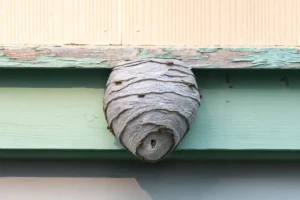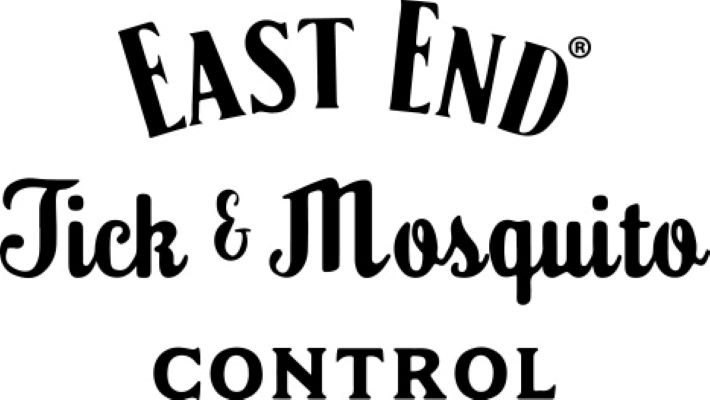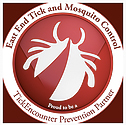 When it comes to bees, wasps, and hornets, the discomfort they bring can go far beyond typical fear. For individuals with allergies, these pests can pose a serious health threat. If someone in your household falls into that high-risk category, stopping these insects from nesting around your home isn’t just helpful, it’s crucial.
When it comes to bees, wasps, and hornets, the discomfort they bring can go far beyond typical fear. For individuals with allergies, these pests can pose a serious health threat. If someone in your household falls into that high-risk category, stopping these insects from nesting around your home isn’t just helpful, it’s crucial.
For families dealing with bee, wasp, or hornet allergies, every outdoor activity can feel like a source of stress. But there’s one space where you can take control: your property. With the right measures in place, you can make your home far less inviting to these dangerous intruders.
To minimize the chance of stinging insects like wasps and hornets setting up nests near your home, try these ten proactive strategies:
- Fully seal the outside of your home
- Remove food sources they’re attracted to
- Rethink your plant choices and landscaping layout
- Use essential oils and steer clear of floral scents
- Keep your yard well-trimmed and clean
- Fix any sources of water leaks
- Fill in holes
- Dress in calm, neutral colors
- Paint or seal exposed wood to block nesting material access
- Regularly check for nests and deal with them early
Now, let’s break down each approach and see how it helps defend your space.
10 Smart Ways to Keep Stinging Insects from Nesting Near Your Home
What’s attracting bees, hornets, and wasps to your property? The answer is simple, they’re looking for essentials like food, shelter, and water. Take those away, and you make your home much less appealing. Here’s how:
-
Fully seal the outside of your home
-
Remove food sources they’re attracted to
- Always keep trash tightly sealed
- Pick up dropped fruit from trees promptly
- Avoid leaving sugary drinks or pet food outside
-
Rethink your plant choices and landscaping layout
-
Use essential oils and steer clear of floral scents
-
Keep your yard well-trimmed and clean
-
Fix any sources of water leaks
-
Fill in holes
-
Dress in calm, neutral colors
-
Paint or seal exposed wood to block nesting material access
-
Regularly check for nests and deal with them early
Stinging insects love cozy crevices. Use sealant to plug gaps in siding, foundations, and around vents. Mesh screens are also effective at keeping them out. By blocking potential hiding places, you cut off their ability to nest near or inside your home.
Outdoor spaces can offer an all-you-can-eat buffet. To reduce appeal:
Certain plants, like mint, citronella, and eucalyptus, repel stinging insects. Place these near doors, patios, or sitting areas. On the other hand, colorful or fragrant flowers can attract bees and wasps, so limit those near your main outdoor hangouts. Maintain tidy landscaping by trimming shrubs and removing overgrowth.
Essential oils like peppermint, clove, and lemongrass naturally repel bees and wasps. Make a DIY repellent spray with water and a few drops of oil and apply it around decks, eaves, or sheds every couple of weeks. Avoid wearing floral perfumes or scented lotions outside, sweet smells can signal “food” to stinging insects.
An untended yard invites nesting. Mow regularly, prune trees and shrubs, and remove debris like logs, stumps, or brush piles. The cleaner the yard, the fewer hiding spots insects will find.
Insects need hydration too. Dripping hoses, leaky irrigation systems, and standing water in containers provide a drink station for pests. Fix leaks and empty anything collecting rainwater to keep your yard dry and unwelcoming.
Species like yellow jackets nest in the ground. Search your lawn and garden for holes left by rodents or erosion and fill them with soil or gravel to prevent underground colonies.
Bright clothing, patterned towels, and vibrant decorations can confuse bees into thinking you’re a flower. Stick to neutral or earth-toned outfits when spending time outside to reduce unwanted attention.
If you have unpainted wood structures like fences, decks, or outdoor furniture, bees and wasps may harvest them to build their nests. Seal or paint exposed surfaces to remove this easy material source.
Do frequent checks around your home, under eaves, in corners of sheds, or beneath decks, for early signs of nests. If you find one, avoid trying to remove it yourself. Disturbing a nest can trigger aggressive behavior. Instead, call a pest control professional who can handle the situation safely and effectively.
FAQs About Bee, Wasp, and Hornet Prevention
Are all stinging insects aggressive?
Not necessarily. Many are harmless pollinators that won’t sting unless provoked. However, species like yellow jackets and some paper wasps are known for their aggression and territorial behavior, especially when they feel their nest is threatened.
Are DIY treatments effective?
DIY options can be risky. Most sprays only affect visible insects and don’t destroy the whole colony. They may also provoke swarms. A pest control expert has the tools and experience to eliminate nests safely and thoroughly, saving you time, money, and stress.
What are some precautions to take when a hive is present?
If you spot a hive or nest:
- Avoid the area in the afternoon when insect activity peaks
- Observe only from afar, ideally early in the day or later in the evening
- Don’t block or cross the flight path leading to the nest
- Keep children and pets safely indoors
- Never try to spray or knock the nest down yourself
Your best course of action? Contact a licensed professional. It’s the safest and most effective way to handle the situation.
Timing Matters: When to Protect Against Stinging Insects in Georgia
Knowing when different stinging insects become active helps you plan ahead and target your prevention strategies at the right time of year. Below is a seasonal guide to the most common stinging species in Georgia, including when they’re active and how much of a threat they pose:
Bald-Faced Hornets
- Seasonality: These hornets typically appear in late spring and stay active through early fall, with peak activity during the summer months. Preventive measures are most effective in late spring before colonies become well-established.
- Danger Level: High. Known for their aggressive behavior, bald-faced hornets defend their nests fiercely and can sting multiple times. Hidden nests increase the risk of accidental encounters.
Bumblebees
- Seasonality: Bumblebees emerge from hibernation in mid-to-late spring and stay busy throughout the summer and into early autumn. Spring is the optimal time to prevent nesting in sheds, under decks, or in underground spaces.
- Danger Level: Low to moderate. While usually calm, bumblebees can deliver a painful sting when provoked. Those with bee allergies should remain cautious.
Carpenter Bees
- Seasonality: These bees begin showing up in early spring, usually by March or April in Georgia, and stay active until late summer. The best prevention window is early spring, before they start boring into wood. Late summer is ideal for sealing old holes once they’ve vacated.
- Danger Level: Low. Male carpenter bees can be territorial but don’t sting. Females rarely sting unless handled. However, their tunneling behavior can cause significant damage to wood surfaces like eaves, decks, and fences.
Honey Bees
- Seasonality: Honey bees become active with the arrival of spring, generally around March or April, and remain so into late fall. Spring is the perfect time to prevent swarming by addressing attractants early.
- Danger Level: Moderate. Honey bees are valuable pollinators and usually non-aggressive. But when their hive is disturbed, they’ll defend it, and repeated stings can be dangerous, especially for allergic individuals.
Paper Wasps
- Seasonality: Paper wasps begin activity in early spring when queens emerge to build new nests. Colonies grow over the summer and wind down in fall. Early spring is your best shot to prevent nests from being built.
- Danger Level: Moderate to high. Though less aggressive than yellowjackets, paper wasps will sting when threatened. Their sting is painful and can trigger allergic reactions in sensitive individuals.
Yellowjackets
- Seasonality: Yellowjackets appear in late spring and dominate through the summer, reaching their peak nuisance level in late summer and fall. Prevent nests from forming by taking action in late spring or early summer.
- Danger Level: Very high. Yellowjackets are intensely territorial, quick to attack, and capable of stinging multiple times. They’re also drawn to food and drinks, making them a common problem at outdoor gatherings.
Dealing with a Stinging Insect Issue?
Our licensed wasp, bee, and hornet specialists are ready to help. We can locate nests, assess risk, and remove colonies safely and efficiently. Contact us today to schedule a visit and take back your yard.





